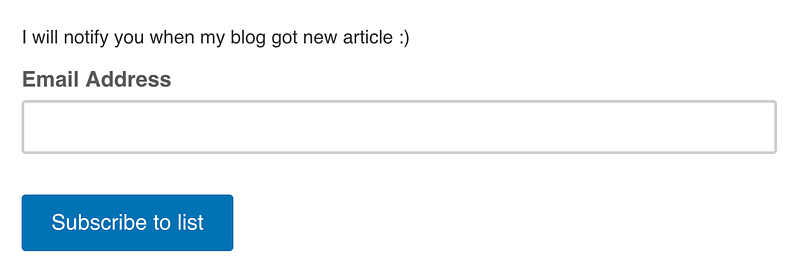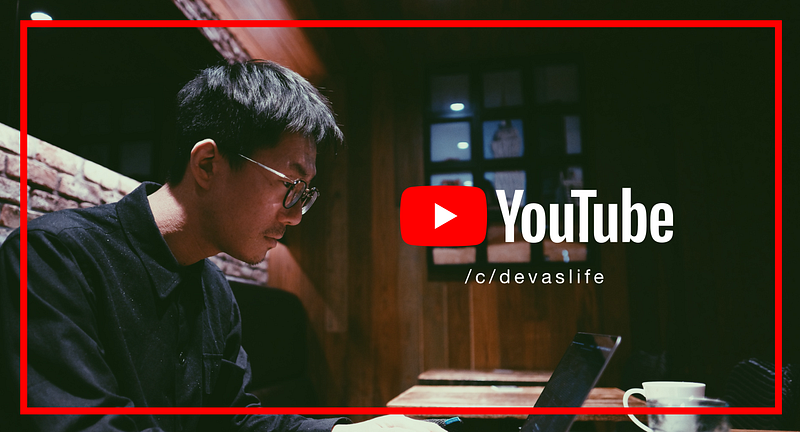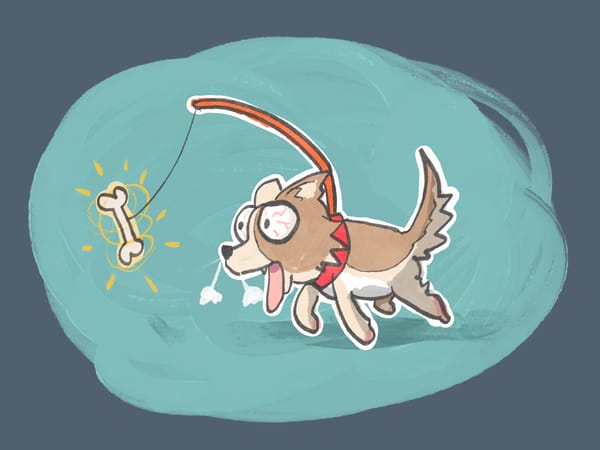How I Kept My Solo Project Going Over 3 Years
Know the “Why-es” for Your Passion, Attractiveness, Anxiety and Fear
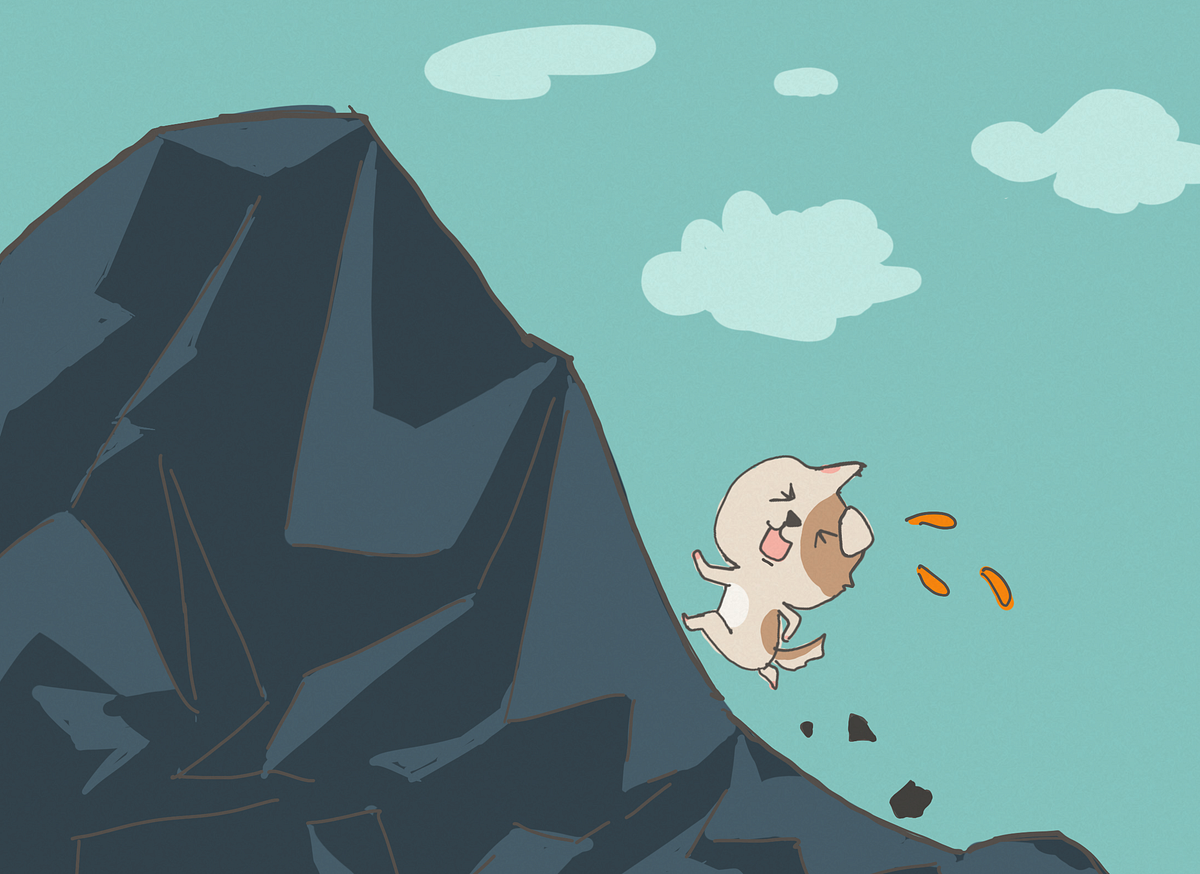
Know the “Whys” for Your Passion, Attractiveness of Your Work, Anxiety About Future and Fear of Failure
Hi, it’ Takuya here.
I’m running a solo project called Inkdrop, a Markdown note-taking app. Thanks to all your support, it is 3 years old now. I’m currently working on preparing to roll out the new version announced recently. Well, 3 years — a long journey. It is the result of my strategy that I solely focus on the project sustainability with subscription pricing, long-term roadmaps on improving core features instead of adding more features, and quick and good user supports, rather than aiming short-term achievements. These have been basically done all alone. In order to get the strategy to work, I woke up in the morning, heading to my desk, opening up vim, checking out new inquiries, and on, and on…almost every day. And it goes on.
Of course, I had many days I don’t feel like doing anything. To keep your project going for years requires a lot of grit — sticking to something, work hard, and not quit — even if it’s what you love to do. Because you don’t always get great results as you expected. You may get sticky bugs, complaints, server incidents, bad user retentions, and so on. Problems are constantly coming in spite of the fact that you would think it’s perfect and you have done great job. You have tons of things to do. Besides, anxiety about the future and fear of failure always stick with you. Nobody knows whether your project keeps growing or not. Many ups and downs are awaiting. It must be hard, and without preparation, you will burn out…you may want something that helps you keep going along with your growth strategy. It seems like ‘burnout’ is a big issue for most people on their solo projects. So I would like to talk about why I could accomplish to let my project run over 3 years. Am I mentally so strong like a superman? Hardly. I’ve got reasons for three “whys” from my own projects, which make me so gritty:
- Passion: Why do you build?
- Attractiveness: Why do you build this app?
- Anxiety and Fear: Why should you build?
That is, knowing yourself — It tightly supports your project. Let’s get right into it.
Passion: Why Do You Build?
I can’t live without building things.
Let me talk about my experience when I was around 20 years old. I could not make anything successful at that time. I wanted to become a game creator, so I worked hard to make a great game every day after school, as I talked in this video. Sadly, people around me has never praised my works. My mom even said, “Why do you need to do such thing for a long time?” In spite of the fact that I was doing what I love, they seemed like not understanding me. Besides, it was too hard to finish making an action RPG alone whereas we have a lot of useful tools and resources to build games like Unity today. I felt sad and lonely, and started losing my passion to build. It was just fun, but that was not enough to maintain my motivation. I experienced a big setback and was about to lose my meaning of life. But a few years later, I was surprised that my website got intensive number of page views from a large website that introduced my tool made just for myself. This was a breakthrough that changed my entire life, telling me that I have a quality to please someone with my creations and that makes me extremely happy. I found that making what I want will be also useful for others from that experience. It does not have to be a masterpiece of game. I found which way I should go.
So I have the story that let me know the “why” for my passion: To build things is the most effective way to please people for me. Whatever it is, “why” makes you able to see your works as meaningful, letting you become resilient. You love what you do. But why? You should find a clear reason for it.
Who finds their careers meaningful and fulfilling? Hospital cleaners who saw their jobs as “just a job” didn’t derive any deep satisfaction from their careers. But cleaners who told themselves the story that this was their “calling” — and that their work helped sick people get better — saw their jobs as meaningful.
— Barking Up the Wrong Tree by Eric Barker
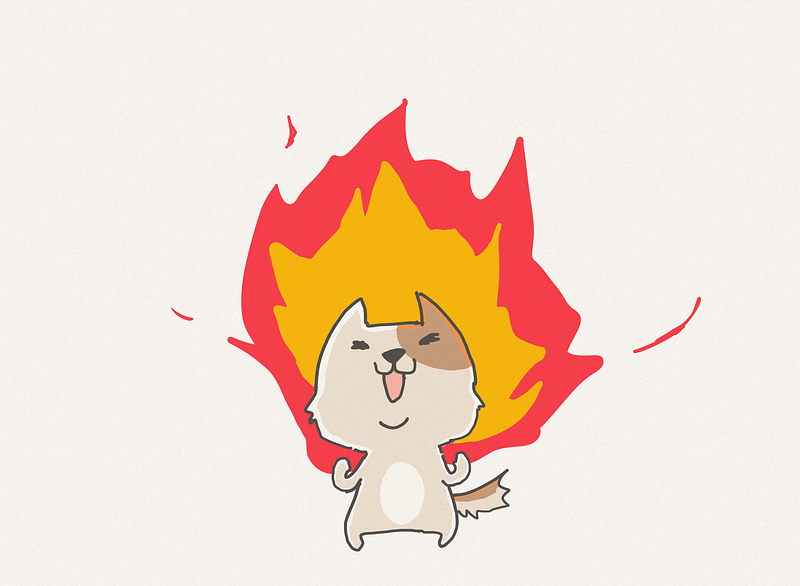
Attractiveness: Why Do You Build This App?
I can’t keep on building things that I no longer love.
I wanted a simple, clean and beautiful Markdown note-taking app. So I made it. It shouldn’t be feature-heavy, hard to use, nor ugly looking. I assume that people who like my app would nod. In order to keep it to be like that, I’ve been saying many noes to feature requests. Some of those who gave me suggestions were not happy with my answers but I would think it is necessary to keep it going. Because I need to love it. Of course, feedback are very helpful, I always appreciate them all, but you have to mind the gap between your concept and their suggestions. I must protect it from becoming what I can’t love, which will be a significant problem with continuing the project.
You may not want people to dislike your app. Me, too. But they will not like it for various different reasons. They tend to say “if it supported that, then more people use it.” No, it’s a lie. Here is an interesting study done by Technical University Dresden in 2012, titled “Are We Talking About the Same Person Here?”: Interrater Agreement in Judgments of Personality Varies Dramatically With How Much the Perceivers Like the Targets. They investigated how interrater agreement in personality judgment is affected by the perceivers’ affection or dislike regarding the targets. A total of 209 perceivers judged the personalities of 15 targets by means of 30 adjectives. The targets were public figures (e.g., the Pope), which enabled gathering a large number of ratings by perceivers differing in liking. Shared liking was associated with strong increases, and large liking differences were associated with strong decreases, in profile correlations. Shared antipathy was also associated with lower agreement. The greater agreement between judgments of liked targets was largely due to the perceivers characterizing targets positively, whereas judgments of disliked targets were not affected by (shared) negativity to the same extent.
I guess this can be applied also to app developments. In a nutshell, people tend to have similar reasons to like in common about your app, whereas they tend to have various reasons to dislike between them. That’s why focusing on improving core features would make a lot more sense than adding many features for a small minority of users. Know your app’s attractiveness. Don’t forget why you built it.
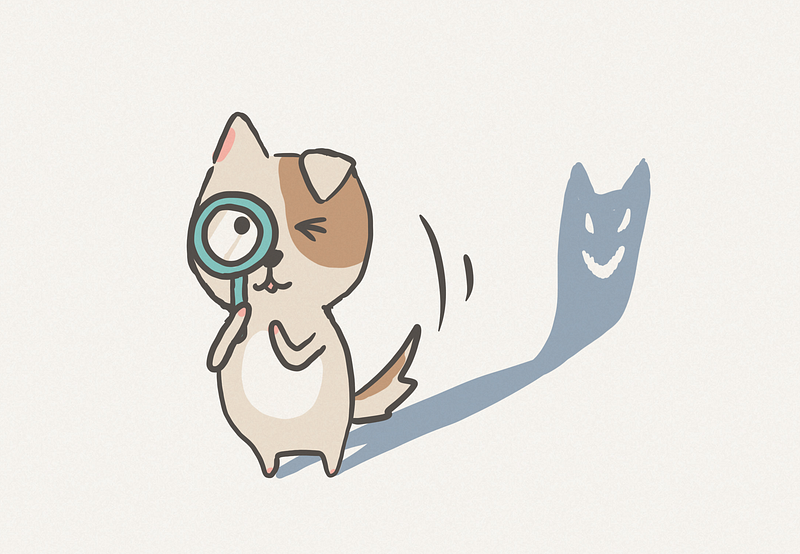
Anxiety and Fear: Why Should You Build?
I don’t feel like living my life without taking any risks because it’s just boring.
As my app starts showing its growth, I was happy for a while but shortly afterward I felt anxious whether it stops growing. The feeling always sticks with me regardless of whether I’m working on the app. Ugh. I struggled hard to get rid of my uneasy feelings from my head but no luck. I gave up to do so. Instead, I decided to think of this anxiety about the future as a proof that I’m really doing what I want to do. Most people basically try to avoid and suppress those bad feelings like by belonging to a majority group, doing what they say, not challenging new things, etc… In exchange for that, they have to disallow themselves from doing what they really want to do. It’s a trade-off. I hate living rest of my life while excusing myself for not giving what I loved to do a try. I would rather accept anxiety. In the famous commencement speech Steve Jobs gave at Stanford in 2005 he said:
“Remembering that I’ll be dead soon is the most important tool I’ve ever encountered to help me make the big choices in life.” — Steve Jobs
Thinking about death is very effective. That lets me stop watching boring YouTube for a long time and takes me back to terminal window. That tells me what I should do now. It is called “The Scrooge Effect.” Have a responsibility for your limited “now” — Then, you can strongly believe in what you are doing. Feeling fear of failure can be even enjoyable. Taro Okamoto, an abstract and avant-garde artist, said in his book:
It is more fun if you get stuck. So you should try to break through it. It is not fun at all if you do not get stuck. — Taro Okamoto
If you always get results as you expect, it should be boring. It’s like you are playing level 1 endlessly in a game. Zero failure means zero fun. But most people basically don’t like failure, and that’s the source of fear. The most horrible failure that could happen for me is to lose all users. What happens if I shut down my app? I won’t die like Batman. I will find contract works more easily than before because my app would be a great proof of my ability. And I will certainly start new project again not completely from zero as I have learned a lot from past projects and have some audiences already on Twitter and Medium. It’s like a “New Game+”.
So anxiety about the future and fear of failure are a barometer that you are really living your life. Along with them, you know what you should do today. Let them come in.
I think I’m lucky. Because it seems that a lot of people struggle to find their “whys.” I’m still searching for more reasons to go further. When you are running out of your momentum for your project, try asking yourself following questions:
- Why do you build?
- Why do you build this app?
- Why should you build?
I hope you will find answers, which certainly give you grit!
